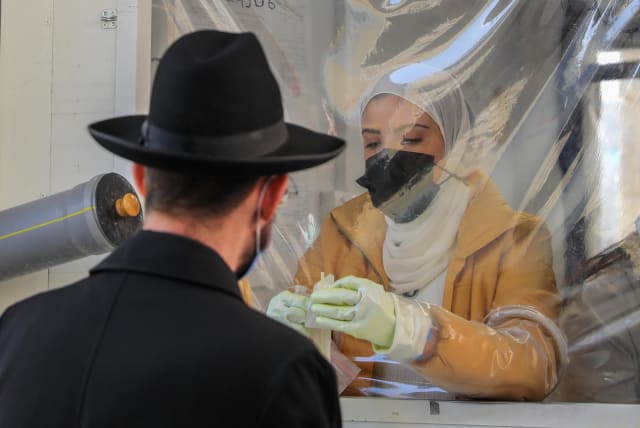Taiwan can help Sustainable health development in the post-pandemic era - opinion

We should draw a lesson, once again, that the lethality of a global pandemic requires collective collaboration from every country in the world, as disease knows no borders.
Last month, the World Health Organization (WHO) marked its 75th anniversary. In 1948, countries across the globe came together and founded WHO to promote health, keep the world safe and serve the vulnerable with the motto “Health for All.” We could not agree more.
As the world enters the post-COVID-19 pandemic era, most border restrictions have been lifted, and global health and economic governance has shifted from pandemic response to post-pandemic recovery. While we reinstate normalcy gradually, we should not forget the grim global death toll of COVID-19, which has surpassed 6.9 million people up to now, according to the official statistics published by the WHO.
But the number of the deceased could have been larger. We should draw a lesson, once again, that the lethality of a global pandemic requires collective collaboration from every country in the world, as disease knows no borders.
Taiwan has been blocked from international efforts
However, Taiwan, a traveling hub in Asia, unfortunately, has been blocked from participating in critical international efforts to control the spread of disease, and has been denied access to technical meetings and platforms for medical experts and scientists to share its knowledge and expertise.
This is despite the willingness and ability to contribute and help and 23.5 million people living on the island are cut off from global heath security initiatives.
While Taiwan’s challenges are daunting, there is a silver lining. Because of its accumulated experience in combating contagious diseases, its comprehensive public healthcare system and its well-trained medical personnel, Taiwan is more prepared than ever. Taiwan has also shared valuable lessons with other like-minded nations and joined in noble actions to provide medical assistance to countries and people during and after wars and natural disasters.
For example, the Taiwanese government and people donated $5.8 million to assist seven hospitals in Ukraine, including the National Children’s Hospital, to ensure the health rights of people at war. In addition, Taiwan has dispatched medical missions and health experts to countries in need, as we believe we are stronger together. This is also the Jewish spirit of chesed (a good deed).
Taiwan and Israel share the same innovative spirit and both countries are prime examples of universal health coverage. Like Israel, Taiwan is committed to promoting digital health and innovation to enhance the accessibility and quality of healthcare services.
Taiwan has introduced innovative healthcare services, utilizing real-time telehealth consultations for patients residing in remote areas and outlying islands, and is exploring applications for artificial intelligence and other emerging technologies.
Understanding how important it is to work with the international community, Taiwan is willing to further share innovative technologies and best practices with partners around the world to advance healthcare and help WHO implement its motto “Health for All.” The importance for WHO to include Taiwan in international health issues has been highlighted and supported by more and more like-minded countries and partners, as stated in the 2023 G7 Foreign Ministers’ Communique, last month.
Taiwan has not been invited to the World Health Assembly since 2017. Now that the COVID-19 pandemic is abating and the dialogue on strengthening health systems worldwide is accelerating, no country should be left out. Taiwan can help and Taiwan’s inclusion would surely make the world healthier and more sustainable.
The writer is the representative of the Taipei Economic and Cultural Office, in Tel Aviv.
Jerusalem Post Store
`; document.getElementById("linkPremium").innerHTML = cont; var divWithLink = document.getElementById("premium-link"); if (divWithLink !== null && divWithLink !== 'undefined') { divWithLink.style.border = "solid 1px #cb0f3e"; divWithLink.style.textAlign = "center"; divWithLink.style.marginBottom = "15px"; divWithLink.style.marginTop = "15px"; divWithLink.style.width = "100%"; divWithLink.style.backgroundColor = "#122952"; divWithLink.style.color = "#ffffff"; divWithLink.style.lineHeight = "1.5"; } } (function (v, i) { });

